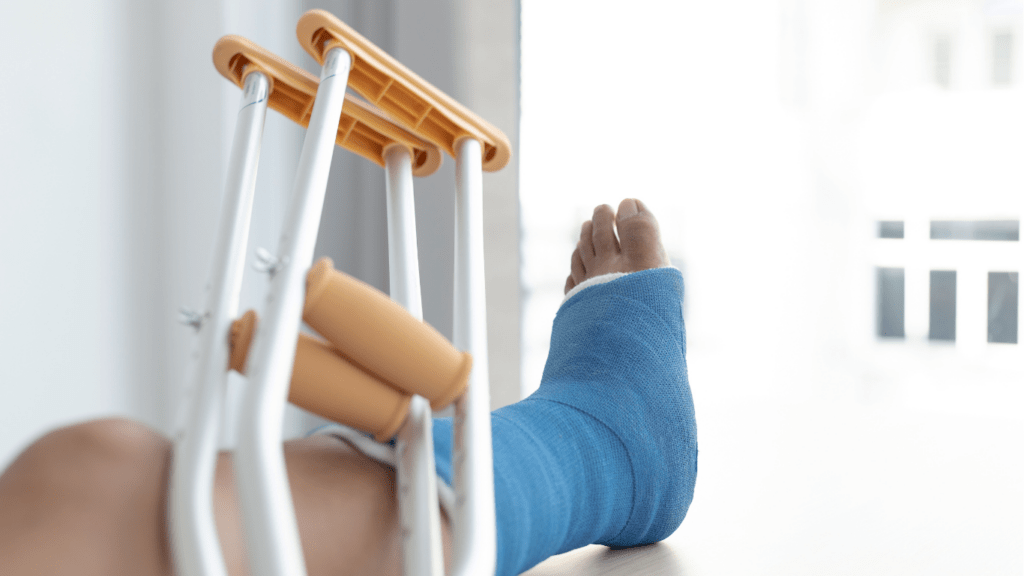Understanding Setbacks: Their Nature and Impact
Setbacks in injury and recovery are common yet challenging. They often disrupt progress and test one’s resolve.
What Constitutes a Setback in Injury and Recovery
A setback involves any event that hinders healing or progress. Examples include reinjury, slower recovery than expected, or new health issues. These interruptions can feel discouraging yet are part of the recovery journey.
Psychological and Physical Impacts of Setbacks
Setbacks trigger emotional and physical effects. Psychologically, they may lead to frustration, anxiety, or depression.
Physically, they can cause pain, reduced mobility, or regression in healing progress. Balancing mental and physical health is crucial during setbacks to maintain overall well-being.
Strategies to Maintain a Positive Mindset
Injuries can feel overwhelming, but maintaining a positive mindset helps expedite recovery and improves overall well-being. Effective strategies focus on mental and emotional resilience to combat setbacks.
Embracing Positivity Through Mindfulness and Meditation
Mindfulness and meditation cultivate a calm mind essential during recovery. Mindfulness practices, like:
- deep breathing exercises
- body scans
help me stay present and reduce anxiety.
Meditation reduces such:
- stress
- enhances mood
- aids pain management
By practicing meditation daily, I improve my mental focus and emotional regulation, which supports recovery.
The Role of Support Systems in Positive Recovery
Support systems play a crucial role in maintaining positivity. Family, friends, and healthcare professionals provide emotional support and practical assistance.
Leaning on my support network keeps me motivated and encourages me to stay positive. Regular check-ins with loved ones and engaging in support groups connect me with others facing similar challenges, reinforcing a sense of community and shared strength.
Case Studies: Successful Recovery Stories

Examining real-life recovery stories shows how individuals can overcome injury setbacks with determination and the right strategies.
Examples of Individuals Overcoming Injury Setbacks
- Amputee triathlete Sarah Reinertsen shows remarkable resilience. After losing her leg at age seven, Sarah didn’t just participate in sports events but excelled in them.In 2005, she became the first female amputee to complete the Ironman World Championship in Kona, Hawaii.
- Basketball player Paul George faced a severe leg injury in 2014. Through relentless rehab and positivity, he returned stronger and led his team to playoffs in 2016, earning an NBA All-Star title.
- Paralympian Tatyana McFadden, born with spina bifida, adopted a positive mindset and rigorous training routine. She not only recovered but also won 17 Paralympic medals across five games.
Learning from Others: How Stories Can Inspire
Stories like these offer powerful lessons on resilience. Sarah Reinertsen’s journey teaches that setting ambitious goals makes recovery purposeful.
Paul George’s return to the NBA shows that persistence and a positive attitude can overcome even severe injuries.
Personal stories provide emotional motivation, showing that setbacks are surmountable. Tatyana McFadden’s achievements illustrate that relentless effort and a positive outlook can lead to extraordinary success.
These narratives offer practical insights. Observing how these individuals leveraged mindsets, support systems, and strategic rehab can provide actionable steps for anyone facing injury setbacks.
Tools and Resources for Managing Recovery
Recovering from an injury can be tough, but several tools and resources can help maintain a positive attitude and track progress effectively.
Apps and Online Resources to Track and Motivate Recovery
Several apps and online platforms offer tools to monitor recovery and stay motivated. MyFitnessPal provides personalized exercise and nutrition plans to assist with physical rehabilitation.
Headspace offers guided meditation to manage stress and enhance mental well-being. The PhysiApp platform supplies video exercises and progress tracking tailored by physical therapists.
For those looking to document their journey, Day One is an excellent digital journal to record thoughts and milestones.
Professional Help: When to Consider Therapy or Counseling
In some cases, seeking professional help becomes essential. I should consider therapy if experiencing chronic pain, severe emotional distress, or if progress stalls despite self-management.
Physical therapists can design individualized rehabilitation plans. Psychologists and counselors assist with coping strategies for anxiety and depression.
Consulting professionals such as dietitians can ensure optimal nutrition during recovery. Seeking expert advice accelerates healing and safeguards mental health through tailored support.



